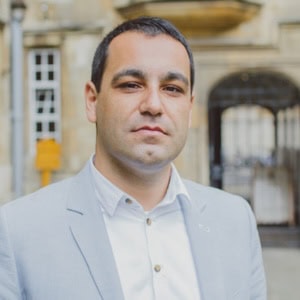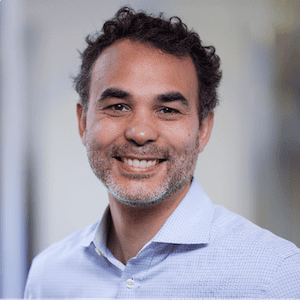-
An Integrated Approach to Financial Inclusion: Welcoming NextBillion’s Newest Partner, BFA
Recognizing that the financial challenges of low-income people won’t be solved by access alone, BFA seeks out solutions that combine finance, user-centered design, data, policy and technology. That's why NextBillion is pleased to announce BFA as the sponsor of our new "Inclusive Fintech" Zone, which will host blog posts on the latest fintech trends, innovations and enterprises, along with two ongoing series exploring BFA's insights and analysis of financial inclusion-focused initiatives.
- Categories
- Finance, Technology
-
Can Next-Generation Startups Unite Agritech and Fintech for Farmers in Emerging Markets?
An amalgamation of agritech and fintech solutions could have an incredible impact for the masses, especially populations that work within the agriculture chain. But making these apps and other digital solutions more user-friendly is critical to expanding their usage. Developers may need to borrow the best toolsets from both sectors, writes Sneha Sampath with Unitus Seed Fund.
- Categories
- Agriculture, Finance, Technology
-
It’s Not Just About Price: Innovative Solutions to Africa’s Remittances Problem
Through remittances, millions of migrants in developed countries support the basic needs of loved ones in their home countries. But with limited alternatives available, substantial costs are incurred – particularly in Africa where the average cost of sending money is 9.8 percent. Barry Cooper at Cenfri looks at some innovations that have the potential not only to decrease high fees, but to increase access beyond urban areas.
- Categories
- Uncategorized
-
No Internet? No Problem: Turning a Feature Phone Into a Digital Library Can Transform Lives
The cycle of poverty in developing countries is real and often riddled with misinformation. That's why the 3-2-1 Service on simple feature phones – which functions like a search engine without the internet – is so important. And people are willing to pay for it. This not only changes how users engage with their phone but also how international development agencies can engage with users to improve livelihoods.
- Categories
- Education, Social Enterprise, Technology, Telecommunications
-
From Farm to Phone to Table: A Case Study Series Explores the Impact of Digital Tools on Agriculture
Over the past decade, the use of mobile phones and other digital tools in farming has skyrocketed. Today, more than 60 percent of the population in the developing world now have at least one mobile phone. USAID aims to show that digital tools can improve cost-effectiveness and development outcomes in food security and nutrition programs. Cristina Manfre and Christopher Burns explain a USAID case study series on different approaches.
- Categories
- Agriculture, Technology
-
Why We Broke Up the Company: A Former CEO of M-Agri Pioneer Esoko Explains
After a rapid revenue increase and the development of a mobile commerce platform, Esoko saw that it had some challenges balancing its very different product lines. Former CEO Hillary Miller-Wise walks us through the m-agri pioneer's decision to spin off into two companies.
- Categories
- Agriculture, Social Enterprise, Technology
-
Cash, Trees, Honey and Bees: Enticing Ethiopia’s Farmers Toward Eco-Stewardship
In Ethiopia, use of herbicides as well as loss of habitat are causing a reduction in the local pollinator population, not unlike the global trend of pollinator decline that is threatening food security around the world. Julia Entwistle, a graduate student at the University of Michigan's School for Environment and Sustainability, details her summer internship with an organization trying to balance the interests of nature and farmers through profits.
- Categories
- Agriculture
-
Solar Lighting in Remote Rural Areas: Oversold or Truly Illuminating?
It's common wisdom that solar lighting can make a dent in serious problems plaguing the developing world. But the underwhelming social impact measured in a recent randomized controlled trial calls that belief into question. However, research conducted by Miller Center for Social Entrepreneurship, based on in-depth interviews with solar lighting users in Tanzania, found much more positive results. Thane Kreiner and Leslie Gray of Santa Clara University explore possible reasons for the disparate findings.
- Categories
- Energy, Social Enterprise










